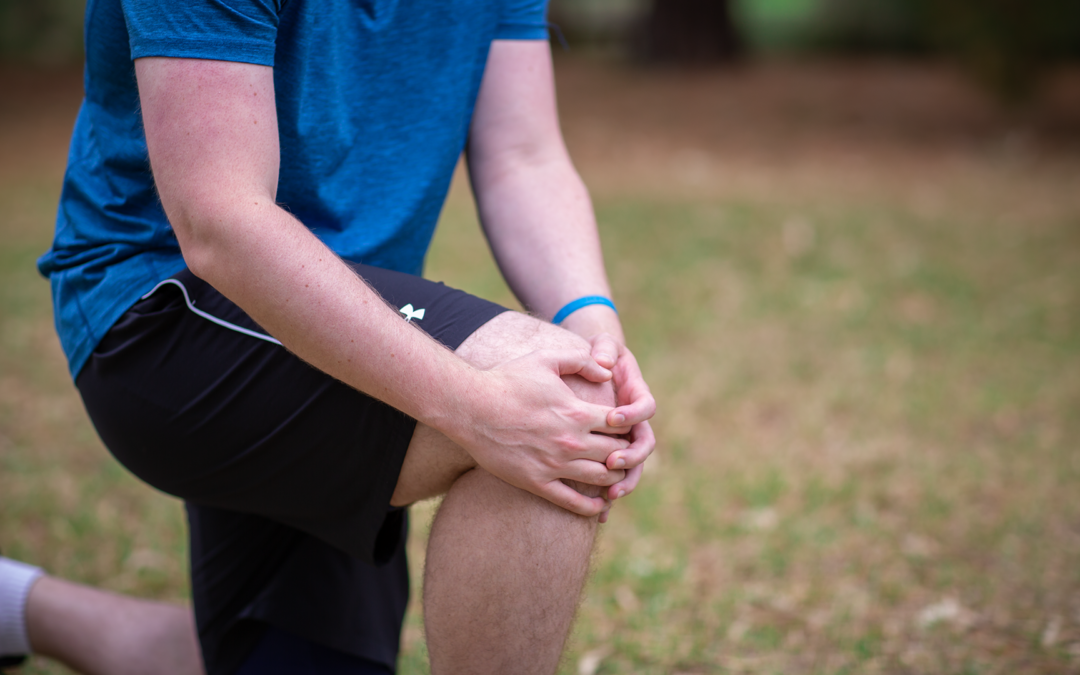Anterior Cruciate Ligament (ACL) Tear
What Is ACL Tear?
A ligament is a strong band of connective tissue that connects bone to bone. The Anterior Cruciate Ligament (ACL) is the first of the major internal ligament that stabilises the knee, together with the Posterior Cruciate Ligament (PCL). It stops the lower bone of the knee (tibia) sliding forward uncontrollably on the upper bone (femur). Without this ligament, whenever you twist or change direction the knee collapses, so you cannot play pivoting sports such as football, soccer, netball and hockey without this ligament.
How Does It Happen?
This injury most commonly occur undertaking activities involving a rapid change in direction, especially twisting, such as during netball, basketball, football and volleyball. It can be a small twist that just felt a bit awkward, but unfortunately can be enough to tear the ligament.
Signs and Symptoms of an Anterior Cruciate Ligament Tear
There can sometimes be a popping sound (not always), and the knee feels like it gives way. The knee usually swells up immediately and it is very hard to continue with the activity that you are doing. You may not be able to straighten the knee fully and if you continue your activity, you’ll find the knee gives way. If you suspect you have done this injury, you need to be seen by a physiotherapist/exercise physiologist or sport doctor WITHIN THE FIRST HOUR, as it is much easier to test this injury before it swells too much than afterwards.
Prognosis
The management of this injury does vary depending on the demands you place on your knee through your life, but your options should be discussed in detail with your physiotherapist/exercise physiologist or sports doctor.
There are two main options:
1. Knee Re-Construction – Most people will need a reconstruction. This is appropriate if
a. You want to continue to play sport throughout your life
b. The knee continues to give way
c. The is also a cartilage (Meniscal) injury
The rehabilitation for this operation takes 9-12 months (yes that long) and if you are not prepared to do this, the operation will not be successful and you should not proceed, however, you will be restricted in the activities you can do for the rest of your life
2. Rehabilitation Only – A specific strengthening program can help manage this problem if you choose not to have a re-construction, however, you will be limited in your activities and will not be able to play sports that involve pivoting activities again.
Diagnosis & Investigations
Usually a thorough assessment by an experienced MD Health physiotherapist/exercise physiologist will be sufficient to have a suspicion of an ACL tear, that will need to be confirmed by a surgeon. They will order at least an x-ray and usually an MRI scan, that will confirm the diagnosis, guide the need for surgery and rule out other potential injuries e.g. knee fracture.
Physiotherapy & Treatment for an Anterior Cruciate Ligament Tear
It is important that you follow MD Health’s physiotherapist/exercise physiologist’s instructions and advice as the rehabilitation process will dictate the extent that this will affect your life in the long term.
1. If you are going to have surgery, an excellent pre-habilitation before the operation will dictate how long and how well you will recover after the operation. The stronger your muscles are before the operation, the better and faster the recovery afterwards. The rehabilitation will take 9-12 months as it take this long for the new ligament to become strong again, but you strength and control will feel better after 3-4 months, if your strengthening program is guided by our physiotherapists/exercise physiologists and must be consistent
2. If you are not going to have surgery, a rehabilitation program is essential as the muscle control of the knee is the only thing stopping the knee from collapsing. Again it will take 3-4 months, needs to be guided by our physiotherapists/ exercise physiologist and needs to be consistent. However, if it continues to give way, this will lead to a larger risk of arthritis, and you will need to re-consider having a re-construction.



